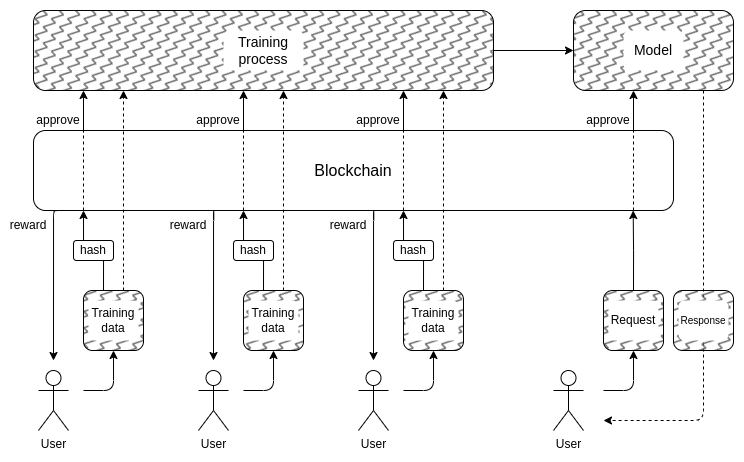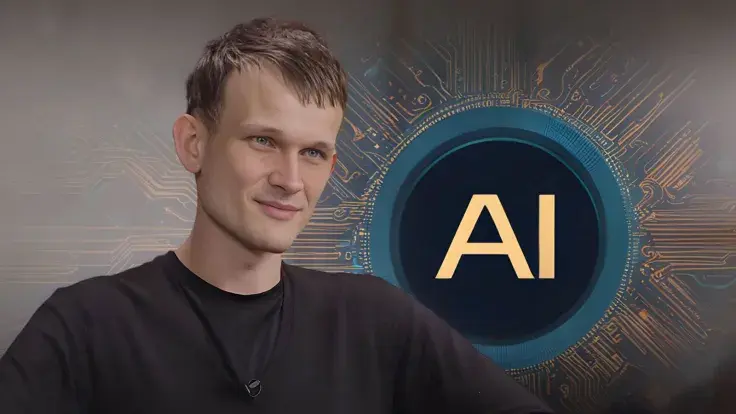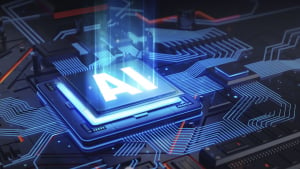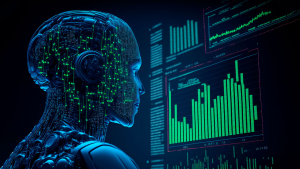Ethereum's risks
In a recent post on the X platform, Ethereum co-founder Vitalik Buterin shared his thoughts amid a surge in AI-related tokens, suggesting one potential application of artificial intelligence that he would like to see: AI-assisted formal verification of code and bug finding.
Buterin's post contributes to a broader discussion he initiated a few weeks ago, where he outlined four ways cryptocurrency and artificial intelligence might intersect. These intersections highlight potential use cases while also acknowledging associated risks.
Four categories of interaction
In a January post, Buterin digs deeper into possible applications of AI in crypto.
Initially, the marriage of crypto and AI seemed intuitive yet lacked concrete applications. However, with the maturation of advanced AI models like LLMs and the evolution of cryptographic solutions such as blockchain scaling and zero-knowledge proofs, previously untapped synergies are beginning to surface.
Buterin presents what he thinks could be the four basic models of AI application.
AI as active participants. This category entails AI entities engaging within protocols where incentives are shaped by human inputs. Examples include arbitrage bots in decentralized exchanges, showcasing AI's prowess in optimizing decision-making within financial mechanisms.
AI as user interfacing tools. AI-driven interfaces can significantly enhance user experiences in navigating the crypto landscape. From scam detection to transaction analysis, AI serves as a powerful ally in ensuring user security and comprehension.
AI as architectural elements. Integrating AI into blockchain architectures presents novel challenges, notably in maintaining transparency and guarding against adversarial attacks. Striking a balance between innovation and security is imperative to unlock this potential.
AI as core objectives. Developing decentralized AI systems via blockchain holds immense transformative potential. However, navigating cryptographic complexities and ensuring robust governance mechanisms are essential to mitigate risks and foster widespread adoption.
From arbitrage bots to prediction markets, AI's role in optimizing decision-making processes within blockchain ecosystems is burgeoning. However, ensuring fair and transparent interactions amid dynamic market conditions remains a pressing challenge.
AI-driven interfaces promise enhanced user comprehension and protection against fraudulent activities. Yet, caution is warranted to mitigate risks of exploitation and errors, particularly in adversarial contexts.

While the prospect of decentralized, trustworthy AI is tantalizing, formidable challenges loom large. Thorough experimentation and cautious deployment are imperative to navigate these complexities and realize the full potential of AI-enabled blockchain solutions.
In essence, Buterin's discourse underscores the evolving landscape of crypto-AI intersections, urging stakeholders to tread carefully while exploring novel applications and safeguarding against emerging risks.
Deepfake challenges
Buterin recently addressed the rising threat of deepfake technology in security contexts. He emphasized the need for adaptive security measures in light of the increasing sophistication of deepfakes.
Buterin suggested integrating security questions, pre-agreed code words and a duress key as effective countermeasures against deepfake manipulation. Additionally, he recommended implementing transaction delays for irreversible actions to allow for verification and intervention.

By proactively adapting security strategies to combat the evolving nature of deepfake threats, individuals and organizations can better safeguard themselves against fraudulent activities in a digitally deceptive environment.
AI and techno-optimism
In a November post titled "My techno optimism" Buterin addressed AI challenges in regard to the general topic of how our society views the rapid technological development.
Some technologies have the potential to alleviate the negative effects of others. However, the world tends to prioritize certain areas of technological advancement while neglecting others. It is crucial for humans to actively steer technology in desired directions, as relying solely on profit maximization will not naturally lead to these outcomes.

Some other bullet points from Buterin's essay cover existential risks, social implications as well as the role of the state in the upcoming challenges.
AI as a transformative force. AI is not just another technology but a transformative force with significant societal implications, akin to past inventions like the printing press or the Industrial Revolution.
AI's potential dominance. AI represents a new type of intelligence that could potentially surpass human intelligence and become the dominant species on Earth, akin to previous evolutionary leaps like multicellular life surpassing unicellular life.
Existential risk. The development of AI poses existential risks, as it could potentially lead to human extinction if AI decides to turn against humanity. Instrumental convergence suggests that AI may prioritize resource consumption and its own safety, posing a threat to humanity.
Governance challenges. Governance structures like OpenAI's attempt to balance profit motives with risk management have faced criticism for their lack of transparency and accountability. Centralized power structures may exacerbate rather than mitigate risks associated with AI development.
Democratic solutions. Rather than relying on centralized power structures, a more democratic approach to risk management, such as the d/acc philosophy, could provide better solutions for addressing the risks posed by AI and other existential threats.






 Dan Burgin
Dan Burgin Vladislav Sopov
Vladislav Sopov